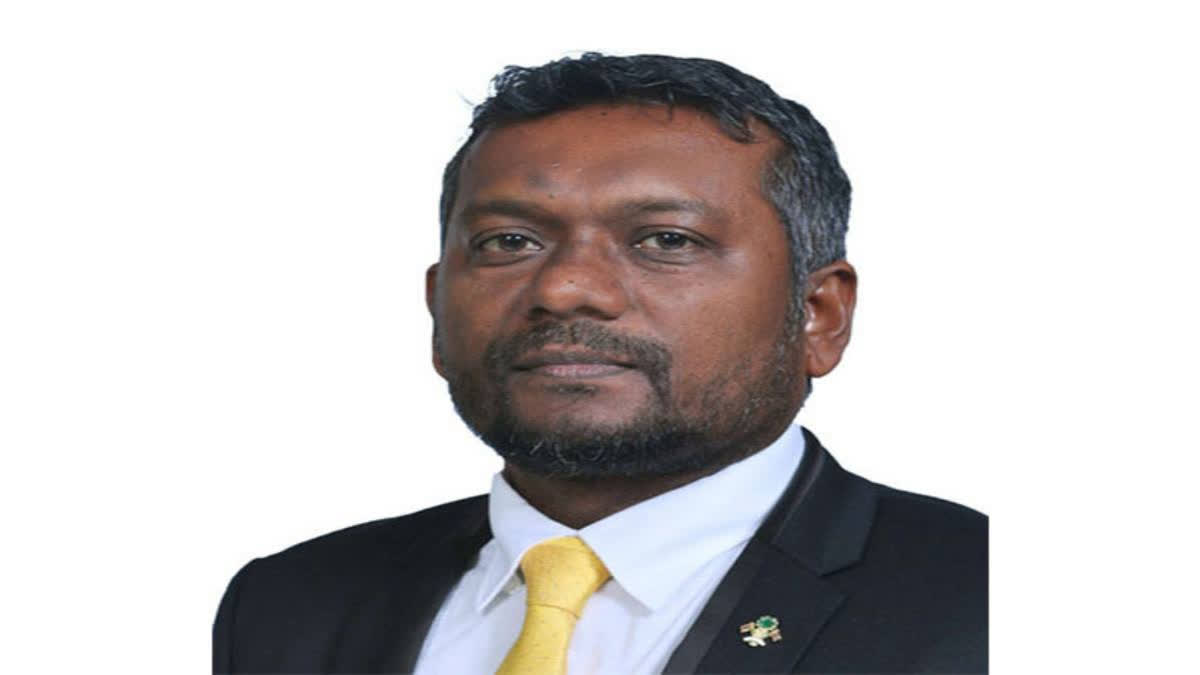New Delhi:Amid the ongoing row between India and the Maldives, opposition leader and the Chairperson of the Maldivian Democratic Party, Fayyaz Ismail, has called for a "tougher stand" by the government, saying that the racist comments against India and Prime Minister Narendra Modi were just isolated individual opinions of these people who were unfortunately given positions in the government.
He underlined how the entire matter has reached a lot of Indians as well as Maldivians, due to easy accessibility of social media. "I personally believe the government should take a tougher stand on that because this goes beyond government to government. Now, because of the easy accessibility of social media, this has reached to a lot of Indians and to a lot of Maldivians. And as arguments take over from both side, there has been lot of insults coming back and forth. So the government needs to show that there was no intention on the part of the government.
These were just isolated individual opinions of these people who, unfortunately, were given positions in the government. So that needs to be clearly shown to the Indians, to the Maldivians, and to the entire world at large," he said. On being asked if the ongoing spat between the two countries is going to have an impact on the India-Maldives ties, as well the revenue that Indian tourists have generated for the island nation over the years, the Maldivian leader, who was also the former Minister of Economic Development of Maldives, asserted that it is much more than economics or revenue.
"This relationship between India and Maldives has been nurtured and fostered over a long period of time by very mature leaders, past leaders of our country and yours as well. So just one or two tweets derailing this entire relationship is very sad," the minister said. "So, for me, the main problem is that this has gone beyond governments. Governments will always have spats; obviously, with the change of political parties, whether it's in India or Maldives, there will be differences of opinion", he added.
He further went on to say that he is more concerned about how to make the required repairs as the ongoing spat between India and the Maldives has now reached the people. "But now this has reached the people, and that is something I am more concerned about--how to repair that. So to repair that from our side, our government have to come up with a stronger statement or action on that. And I would hope that from the Indian colleagues, that there will be more restraint as well to try to diffuse this," he told ANI.
In terms of aid and assistance provided by India to Maldives, he said, "Yes, India has been a very strong development partner of Maldives, not only in terms of economics but social development as well. And at the same time, Maldives has been a strong, staunch ally of India across the international spectrum. So this is a relationship which is mutual". "And the security and stability of the Indian Ocean region depends on the part played by each of the countries, whether large or small, in this region", he added and urged that it is important here that spat is taken as a spat, and forgotten as soon as possible for the interest of both countries".
He said, "Yes, some people, nationalistic people from both countries, may say that Maldives may say, we can do without India, and Indians may say that you are a very small country. But no, that's not the correct approach. We will be here. India will be there. So we need to work together in tandem, which includes our governments and our people as well". Meanwhile, on Maldivian President Mohamed Muizzu's recent visit to China, where he slated to meet Xi Jinping and sign key agreements, the Maldivian opposition leader said that with the change in the political spectrum in Maldives, and in political parties, there will be always shifts in the intensity of engagement.
Well, first of all, there is no doubt that the current government has more favourable or more stronger relation with China. The Maldives has always maintained friendly relations with all countries, except for Israel. So with the change in the political spectrum in Maldives, with the change in political parties, there will be always shifts in the intensity of engagement with different partners, obviously. And in this case, you're seeing more robust engagement with China rather than India", he said.
